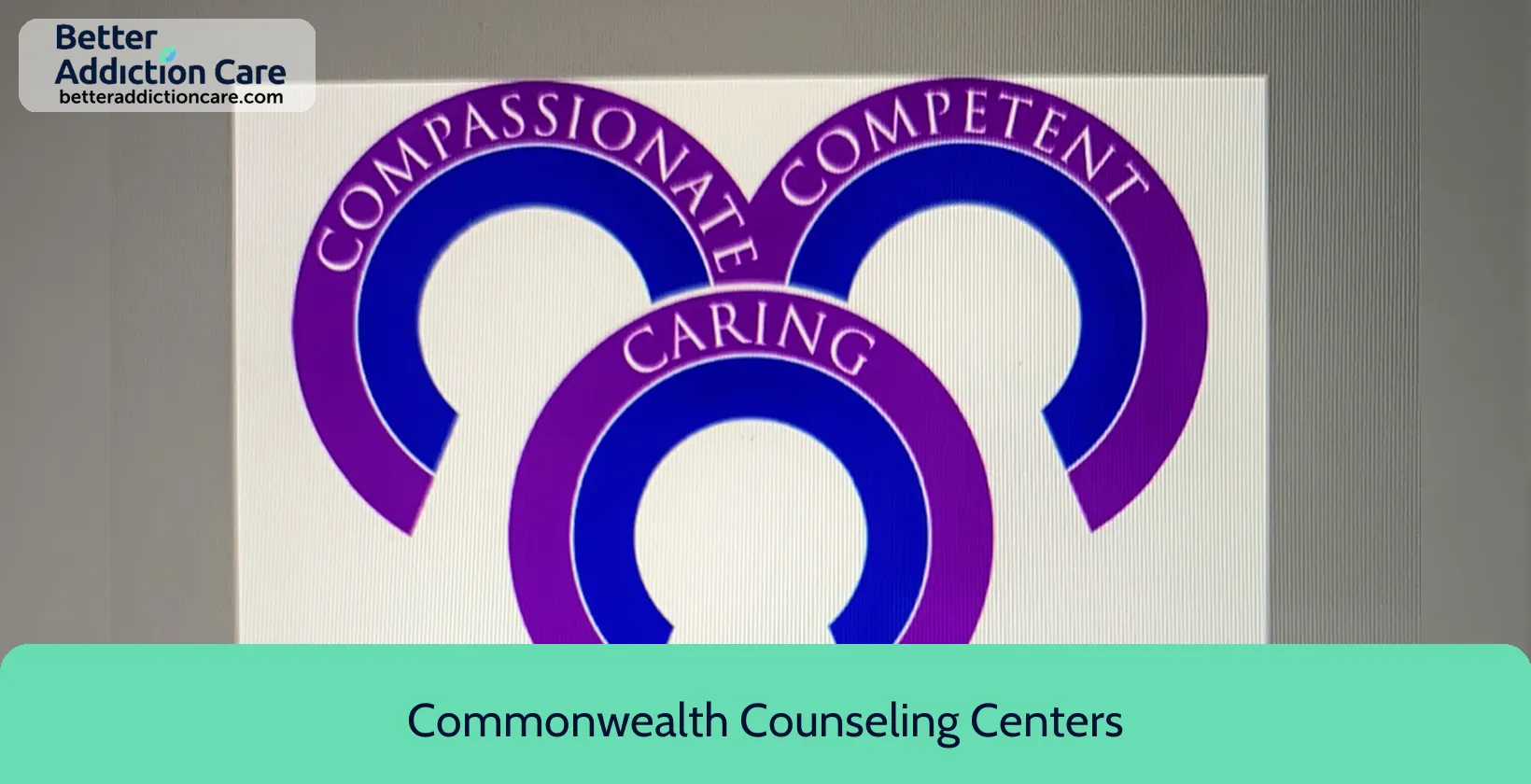Commonwealth Counseling Centers
Overview
Commonwealth Counseling Centers is a substance abuse treatment center for people seeking treatment near Floyd County. As part of their treatment modalities for recovery, Commonwealth Counseling Centers provides family counseling, individual psychotherapy, and group counseling during treatment. Commonwealth Counseling Centers is located in Prestonsburg, Kentucky, accepting private health insurance for treatment.
Commonwealth Counseling Centers at a Glance
Payment Options
- Private health insurance
- Sliding fee scale (fee is based on income and other factors)
- Cash or self-payment
- Medicaid
- Medicare
Assessments
- Comprehensive substance use assessment
- Screening for tobacco use
- Comprehensive mental health assessment
- Interim services for clients
- Outreach to persons in the community
Age Groups
- Young adults
- Adults
- Seniors
Ancillary Services
- Case management service
- Integrated primary care services
- Suicide prevention services
- Mental health services
- Social skills development
Highlights About Commonwealth Counseling Centers
7.45/10
With an overall rating of 7.45/10, this facility has following balanced range of services. Alcohol Rehabilitation: 8.03/10, Drug Rehab and Detox: 7.85/10, Insurance and Payments: 6.00/10, Treatment Options: 7.94/10.-
Alcohol Rehabilitation 8.03
-
Treatment Options 7.94
-
Drug Rehab and Detox 7.85
-
Insurance and Payments 6.00
Accreditations
Commission on Accreditation of Rehabilitation Facilities (CARF):

CARF accreditation is a globally recognized certification for rehabilitation and human service organizations. It signifies that an organization meets high-quality standards and is committed to providing top-level care. Achieving CARF accreditation involves a rigorous evaluation process, including on-site surveys. This accreditation enhances an organization's reputation, instills trust in clients and funders, and encourages ongoing excellence in the field.
State mental health department:
State mental health department accreditation refers to the process of evaluating and certifying the quality and standards of a state's mental health department, ensuring that it provides high-quality services and meets specific criteria for mental health care. The accreditation process is performed by a third-party organization and helps to improve the overall care and treatment of individuals with mental health conditions.
SAMHSA certification for opioid treatment program (OTP):
SAMHSA's Opioid Treatment Programs (OTP) Accreditation is a rigorous recognition process, signaling an OTP's commitment to high-quality care for those with opioid use disorders. It assures patients, families, and the community that the program adheres to evidence-based practices, maintains a safe environment, and employs qualified staff. This accreditation represents a commitment to addressing the opioid epidemic and promoting recovery, symbolizing quality and accountability in opioid addiction treatment.
Treatment At Commonwealth Counseling Centers
Treatment Conditions
- Alcoholism
- Opioid Addiction
- Substance use treatment
Care Levels
- Intensive outpatient treatment
- Detoxification
- Outpatient
- Outpatient methadone/buprenorphine or naltrexone treatment
- Regular outpatient treatment
Treatment Modalities
- Family counseling
- Individual psychotherapy
- Group counseling
- Cognitive behavioral therapy
- Telemedicine/telehealth therapy
Ancillary Services
Additional Services
- Pharmacotherapies administered during treatment
- Mentoring/peer support
- Drug or alcohol urine screening
Special Programs
- Clients with co-occurring mental and substance use disorders
- Clients who have experienced trauma
Contact Information
Read our Most Recent Article About Drug Addiction
DISCLAIMER: The facility name, logo and brand are the property and registered trademarks of Commonwealth Counseling Centers, and are being used for identification and informational purposes only. Use of these names, logos and brands shall not imply endorsement. BetterAddictionCare.com is not affiliated with or sponsored by Commonwealth Counseling Centers.









